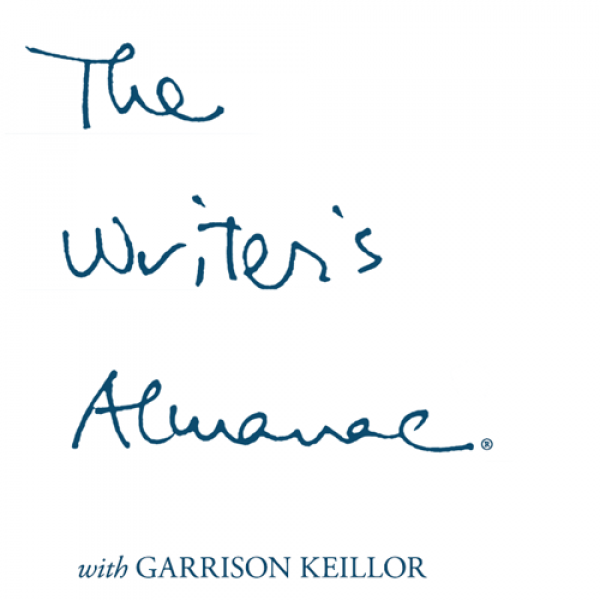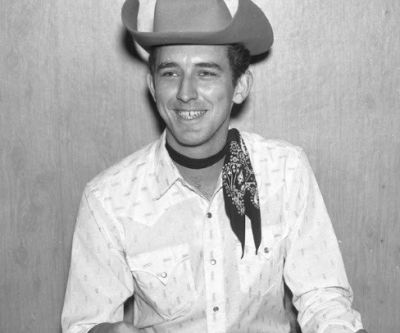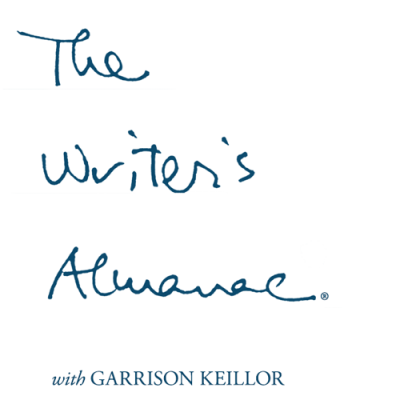December 20, 2018
Tuesday
8:00 p.m.
Minneapolis, MN
Test schedule
A live performance with Robin and Linda Williams at the Cedar Cultural Center
May 20, 2018
Sunday
3:00 p.m.
Lexington, MA
Lexington, MA
A live performance at the Saenger Theatre
April 10, 2018
Tuesday
8:00 p.m.
Tulsa, OK
Tulsa, OK
A live performance at the Brady Theater
March 17, 2018
Saturday
8:00 p.m.
Long Beach, CA
Long Beach, CA
A live performance at the Carpenter Performing Arts Center
March 15, 2018
Thursday
7:00 p.m.
Mobile, AL
Mobile, AL
A live performance at the Saenger Theatre
“Cean Dubh Deelish” by Sir Samuel Ferguson. Public domain. (buy now)
Put your head, darling, darling, darling,
Your darling black head my heart above;
Oh, mouth of honey, with the thyme for fragrance,
Who, with heart in breast, could deny you love?
Oh, many and many a young girl for me is pining,
Letting her locks of gold to the cold wind free,
For me, the foremost of our gay young fellows;
But I’d leave a hundred, pure love, for thee!
Then put your head, darling, darling, darling,
Your darling black head my heart above;
Oh, mouth of honey, with the thyme for fragrance,
Who, with heart in breast, could deny you love?
It was on this day in 1914 that Archduke Franz Ferdinand of Austria and his wife, Sophie, were assassinated in Sarajevo, Bosnia, which began a chain of events that ultimately led to World War I.
In 1882, Germany, Italy, and Austria-Hungary signed a Triple Alliance. Britain was nervous about Russian expansion, but was allied with France, who was allied with Russia, so eventually Britain also agreed to an alliance with Russia; the alliance between those three nations became known as the “Triple Entente.”
By the time that Archduke Franz Ferdinand was assassinated, the alliances were so complex that any act of aggression by any nation toward any other was almost guaranteed to set off a conflict across all of Europe.
Franz Ferdinand was the heir to the Austro-Hungarian Empire. He went to visit Sarajevo, where he was not very popular. Sarajevo was the capital of Bosnia, one of the provinces of Austria-Hungary. But many Bosnians had no interest in being part of the empire, and there were radical militant groups like the Black Hand Gang trying to unite the various Slavic territories under their own rule. The archduke’s assassin, Gavrilo Princip was a 19-year-old member of the Black Hand. Another member of the Black Hand had tried to assassinate Franz Ferdinand earlier that morning, but the grenade he threw had a 10-second delay, so it exploded under a car behind the royal couple, seriously injuring several other people. The archduke changed his parade route so that he could go visit the victims in the hospital, but his driver took a wrong turn. The driver stalled the car while he tried to back up, and Princip just happened to be on that street close to the car. So he pulled out a pistol and shot Franz Ferdinand and Sophie from just a few feet away. Both of them died before they made it to the hospital.
Austria-Hungary immediately blamed the attack on Serbia. The assassination was the excuse that Austria-Hungary needed, and Emperor Franz Joseph declared war on Serbia. Serbia was a small nation, but it called on a powerful ally, Russia, who agreed to fight its side. And suddenly, all the allies were falling into line: Germany sided with Austria-Hungary, and after Germany declared war on France and invaded neutral Belgium, England declared war on Germany.
From the beginning, there were staggering death tolls during what was called “The Great War.” In the Battle of the Somme, close to 60,000 British soldiers died the first day, and by the time the four-month battle was over, more than 1.5 million soldiers had died. The 10-month Battle of Verdun ended with 540,000 French and 430,000 Germans dead. There are no exact death tolls, but an estimated 115,000 American soldiers died, 1.4 million French soldiers, 1.7 million German soldiers, and 1.7 million Russian soldiers.
On top of that, there was a huge financial cost, estimated at between $180 and 230 billion on direct military costs alone.
World War I is often represented as a pointless war — a war started by a relatively minor event, the assassination of Franz Ferdinand, and marked by long deadlocked battles. But historians are now examining the ways that the conflict had been building for years. There were already strong tensions among the European nations, not only from conflicting alliances and naval competition, but also from competing stakes in colonial territories — Germany wanted to undermine the British and French empires; and empires like Austria-Hungary were weakened by ethnic conflict and rebellion.
These days, the most famous literature from World War I depicts the horror and the futility of the war — poems by Siegfried Sassoon and Wilfred Owen, and the novel All Quiet on the Western Front (1928) by Erich Maria Remarque, all of them soldiers as well as writers.
The historian Niall Ferguson wrote: “1914–18 was one of the great watersheds in financial history. The United States emerged for the first time as the rival to Great Britain as a financial super power. … It’s the point at which the United States firmly ceases to be a debtor and becomes a creditor nation — the world’s banker.”
It was on this day in 1948 that Shirley Jackson‘s short story “The Lottery” was published in The New Yorker (books by this author). She wrote it in two hours, and when it was published in 1948, hundreds of readers wrote to the magazine, many of them wanting to cancel their subscriptions because they were so upset by the story. Jackson later wrote: “On the morning of June 28, 1948, I walked down to the post office in our little Vermont town to pick up the mail. I was quite casual about it, as I recall — I opened the box, took out a couple of bills and a letter or two, talked to the postmaster for a few minutes, and left, never supposing that it was the last time for months that I was to pick up the mail without an active feeling of panic. By the next week I had to change my mailbox to the largest one in the post office, and casual conversation with the postmaster was out of the question, because he wasn’t speaking to me.”
Today is the birthday of the founder of the Methodist movement, John Wesley (1703) (books by this author). He was born in Epworth, Lincolnshire, England, and his father was a Nonconformist — a dissenter from the Church of England. Wesley studied at Oxford, where he decided to become a priest. He and his brother joined a religious study group that was given the nickname “the Methodists” for their rigorous and methodical study habits; the name wasn’t meant as a compliment, but Wesley hung onto it anyway and managed to attract several new members to the group, which fasted two days a week and spent time in social service.
By 1739, he felt he wasn’t really reaching people from the pulpit, so he took to the fields, traveling on horseback, preaching two or three times a day. He began recruiting local laypeople to preach as well, and ran afoul of the Church of England for doing so. He believed that Christians could be made “perfect in love” when their actions arose out of a desire to please God and to promote the welfare of the less fortunate. He wrote: “Love is the fulfilling of the law, the end of the commandment. It is not only ‘the first and great’ command, but all the commandments in one. ‘Whatsoever things are just, whatsoever things are pure, if there be any virtue, if there be any praise,’ they are all comprised in this one word, love.”
He was also an ardent abolitionist. In Thoughts on Slavery (1774), he wrote: “Are you a man? Then you should have an human heart. But have you indeed? What is your heart made of? Is there no such principle as Compassion there? Do you never feel another’s pain? Have you no Sympathy? No sense of human woe? No pity for the miserable? When you saw the flowing eyes, the heaving breasts, or the bleeding sides and tortured limbs of your fellow-creatures, was you a stone, or a brute? Did you look upon them with the eyes of a tiger? When you squeezed the agonizing creatures down in the ship, or when you threw their poor mangled remains into the sea, had you no relenting? Did not one tear drop from your eye, one sigh escape from your breast? Do you feel no relenting now? If you do not, you must go on, till the measure of your iniquities is full. Then will the Great GOD deal with You, as you have dealt with them, and require all their blood at your hands.”
He’s said to have traveled 250,000 miles, preached 40,000 sermons, and written, translated, or edited more than 200 volumes. He made £20,000 for his publications but gave most of it away and died in poverty. Though there’s no evidence that he actually wrote it himself, “John Wesley’s Rule” does a fair job of summing up his life:
Do all the good you can,
By all the means you can,
In all the ways you can,
In all the places you can,
At all the times you can,
To all the people you can,
As long as you ever can.
Today is the birthday of comedian Gilda Radner (1946), born in Detroit. She struggled with eating disorders from the time she was nine years old, and said, “I have weighed as much as 160 pounds and as little as 93.” She gained national recognition as a member of the original 1975 cast of Saturday Night Live. She was the first cast member that producer Lorne Michaels chose, and in her five years on the show she created such characters as Roseanne Roseannadanna, Emily Litella, and Baba Wawa (modeled after Barbara Walters).
In 1981, she met Gene Wilder on the set of the film Hanky Panky. They made two more movies together and married in 1984, and when she tried and failed to get pregnant, she found out she had ovarian cancer. After painful radiation and chemotherapy treatments, she went into a brief remission in 1988, and she wrote her memoir It’s Always Something — the trademark phrase of her character Roseanne Roseannadanna — that same year. By the end of 1988, the cancer had returned, and she died the following May.
She wrote in her autobiography: “It is so hard for us little human beings to accept this deal that we get. It’s really crazy, isn’t it? We get to live, then we have to die. What we put into every moment is all we have. … What spirit human beings have! It is a pretty cheesy deal — all the pleasures of life, and then death.”
In the early hours of this day in 1969, the Stonewall riots broke out in New York City, marking the beginning of the LGBTQ rights movement. The Stonewall Inn in Greenwich Village was a popular hangout for gays, lesbians, and transvestites in the late 1960s. On June 28, police raided the bar on the premise that they were selling alcohol without a liquor license. It was the third raid on a Greenwich Village gay bar in a short period of time, and this time when the cops cleared the bar, the patrons didn’t disperse, but milled around outside, hurtling insults and bottles at the police. The officers called for reinforcements and barricaded themselves inside the bar. The riots lasted five days; they galvanized and unified smaller gay rights movements and led to the radical activism of the 1970s. On the first anniversary of the riots, the first gay pride parades were held in Chicago, Los Angeles, San Francisco, and New York.
In David Carter’s book Stonewall (2004), he quotes witness Michael Fader: “We weren’t going to be walking meekly in the night and letting them shove us around — it’s like standing your ground for the first time and in a really strong way, and that’s what caught the police by surprise. There was something in the air, freedom a long time overdue, and we’re going to fight for it. It took different forms, but the bottom line was, we weren’t going to go away. And we didn’t.”






